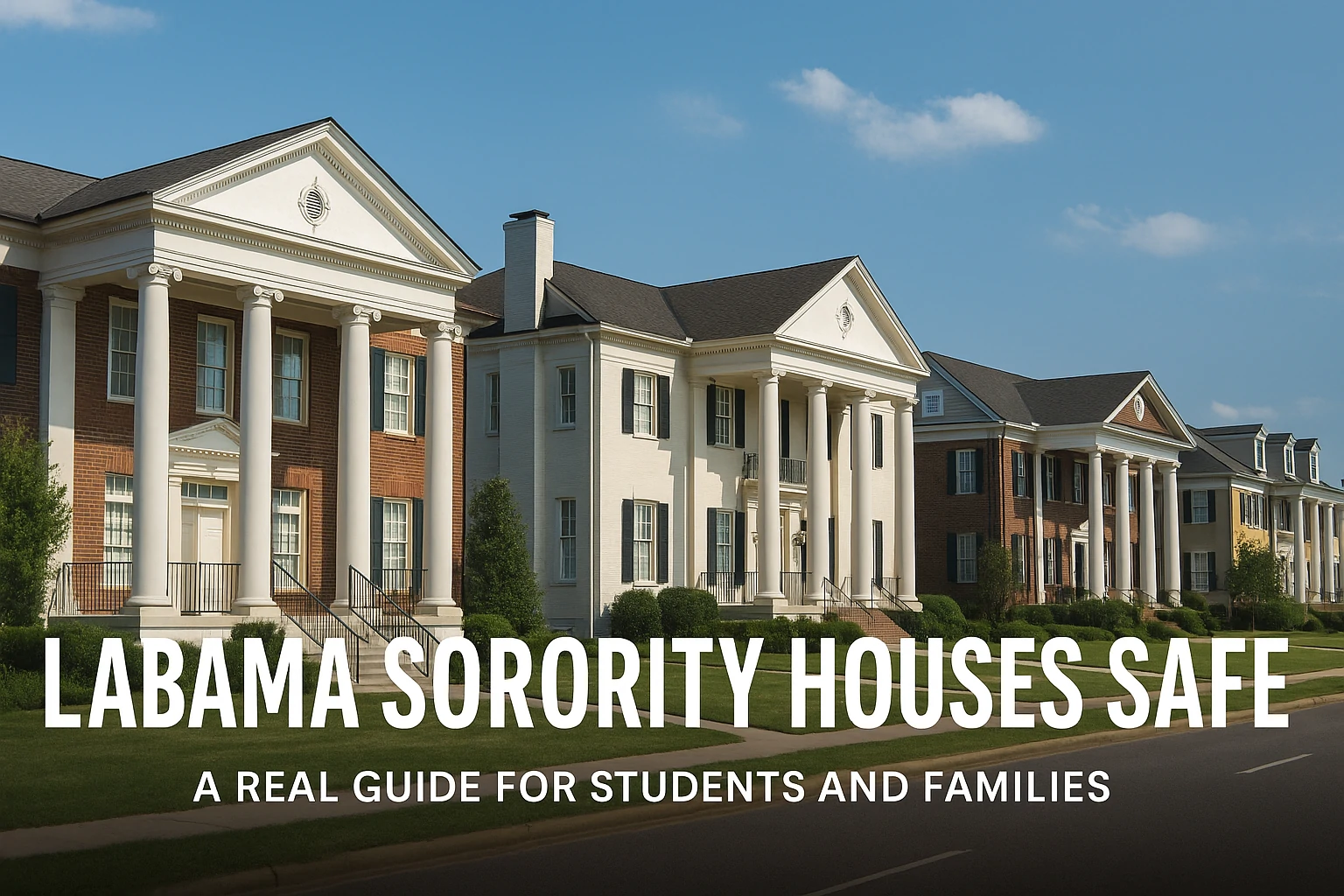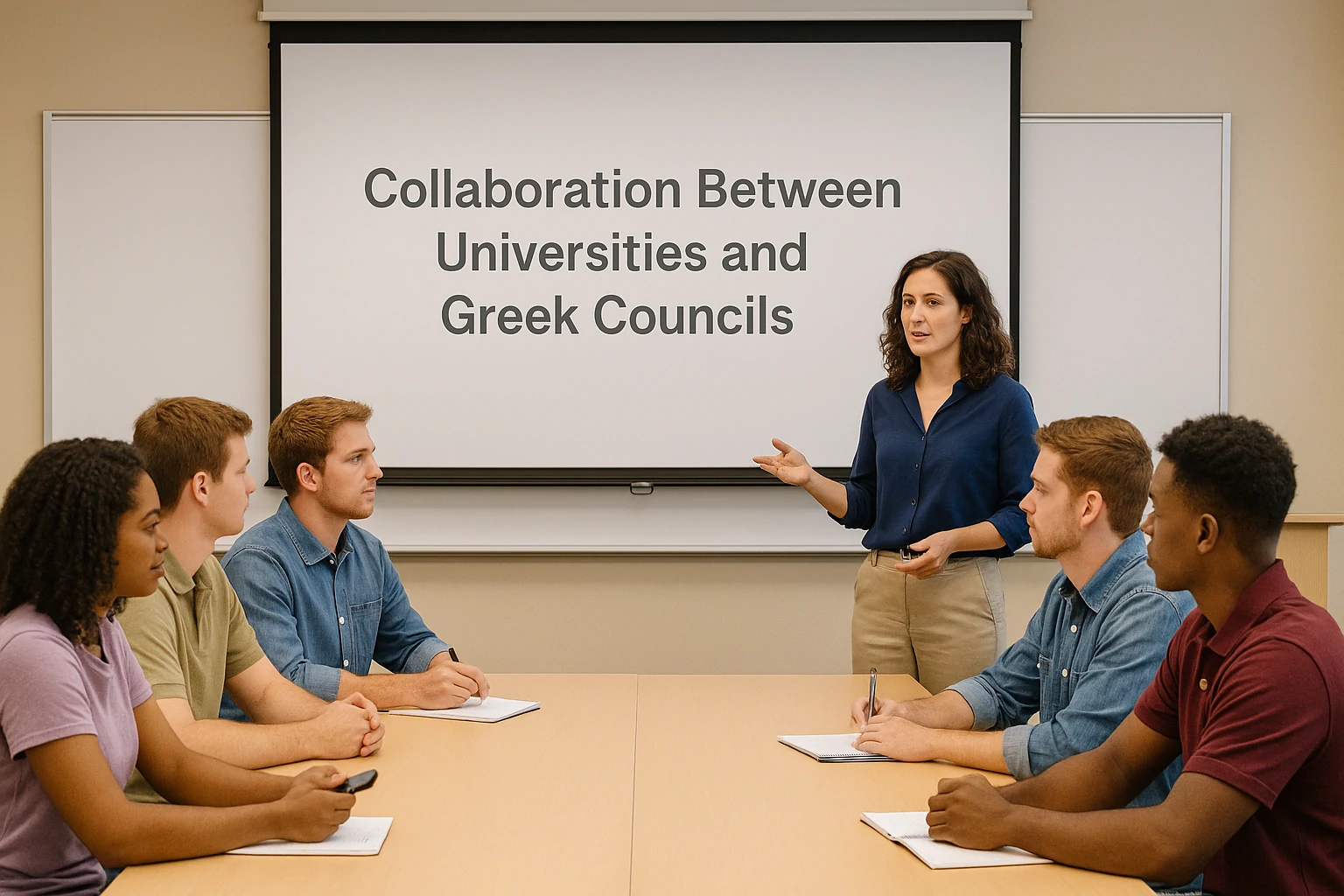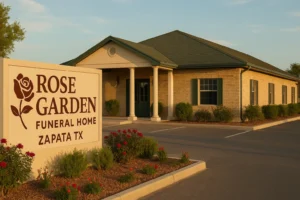College life brings excitement, independence, and new beginnings. Many students move away from home for the first time. They meet new people, explore new places, and learn how to manage daily life on their own. In Alabama, Greek life is a big part of this experience. Sororities play a strong role on many campuses. They offer sisterhood, community, and lifelong friendships. Yet, one question often worries families – are Alabama sorority houses safe?
Parents want peace of mind when their daughters join Greek life. Students want a place that feels like home. Safety matters more than style, parties, or social events. A safe sorority house should protect every member. It should set clear rules and ensure proper support.
This guide looks at real safety in Alabama sorority houses. It covers the laws, rules, and best practices that protect students. It also explains what families and members can do to stay aware and involved. Each section gives practical insight, not just theory. You will learn what makes a sorority house safe, how universities manage risks, and what students can do to stay secure.
Why Sorority Safety Matters More Than Ever
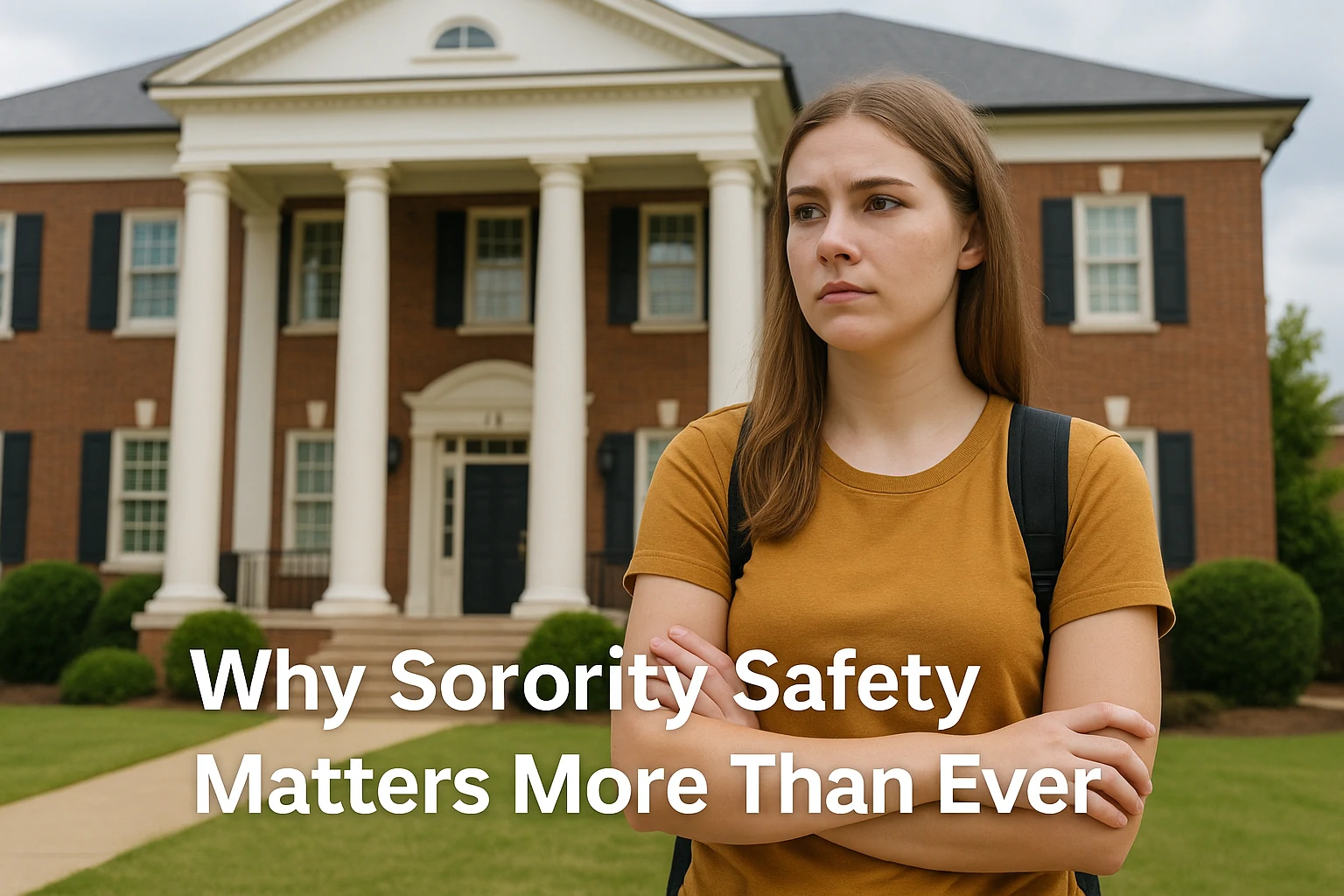
Safety inside Greek housing is no longer a side topic. It is the heart of student life in modern Alabama campuses. Students spend long hours inside these houses, often away from home for the first time. Every rule, door lock, and safety drill protects a real person — someone’s daughter, sister, or friend.
In recent years, universities have faced new challenges. Social media, larger student populations, and public pressure have pushed safety to the front line. Parents expect full transparency. Students demand better protection and mental health support.
Sorority houses now serve as a test of trust. When students feel safe, they thrive. They focus better on academics, build stronger friendships, and make better choices. A secure environment is not just about walls and alarms. It reflects the culture of care that defines real sisterhood.
Understanding Sorority Life in Alabama
Sorority houses in Alabama are more than student housing. They are communities with deep roots. Each chapter follows national traditions and local rules. Greek life brings social events, academic help, and community service. It also builds strong leadership skills. Yet, with close living and group activities, safety becomes a shared duty.
Most large Alabama universities have Greek systems. The University of Alabama in Tuscaloosa, Auburn University, and the University of South Alabama all have strong sorority networks. Each campus sets rules through its Office of Fraternity and Sorority Life. These offices inspect houses, guide conduct, and handle reports.
Alabama’s sorority culture is traditional. Big events, recruitment weeks, and charity drives draw attention from across the state. But behind the glamour, safety standards exist to protect members. Each chapter must follow housing codes, fire safety laws, and student conduct policies. These rules keep the community secure and respectful.
Housing Safety Standards
Every sorority house in Alabama must meet state and local safety codes. These rules include fire systems, exits, lighting, and building maintenance. Campus and city inspectors often check these houses. Sorority chapters usually lease or own their houses through national organizations that handle upkeep and insurance.
Each room must meet fire regulations. Working smoke alarms, clear exits, and sprinkler systems are required. Houses also follow rules about occupancy and maintenance. This includes safe wiring, secure windows, and clean air systems.
Most universities in Alabama also require annual inspections. They work with local fire departments and health offices. If a house fails inspection, the university or national chapter must fix issues before students can live there. Some sororities also hire private security or install alarm systems.
Regular Inspections and Accountability
Each Alabama sorority house undergoes regular safety inspections. Local authorities and university departments conduct them yearly. These checks include fire systems, exits, wiring, and water safety. Inspectors ensure no rule is ignored.
Any violation leads to written notice. The house must fix issues quickly or face suspension from campus housing privileges. National organizations often send their own auditors too. This dual inspection keeps accountability strong.
Students and parents can request safety reports from the housing office. Transparency creates trust. It also motivates chapters to keep every part of their home safe and up to code.
Campus Safety Policies and Oversight
University rules add another layer of protection. The University of Alabama, Auburn University, and other schools maintain policies that extend to sorority life. These include campus police patrols, emergency hotlines, and safety awareness programs.
Each Greek house must register with the university. They provide emergency contacts, floor plans, and occupancy details. The campus police monitor nearby areas and respond to calls. Sorority houses also use campus safety apps, allowing members to check in or send alerts.
At large campuses, the university partners with city police. This cooperation helps manage off-campus safety too. Officers patrol Greek Row, student neighborhoods, and event zones. Families can ask for the campus annual safety report to see crime statistics near these houses.
Just like Tony Ressler’s lavish home shows the importance of upscale comfort and privacy, Alabama sorority houses continue upgrading their safety and living standards for modern students.
Collaboration Between Universities and Greek Councils
Every major Alabama university works closely with its Greek councils. These councils manage student organizations, events, and housing rules. Together they create a strong chain of oversight.
Greek councils run workshops on security, risk prevention, and leadership. They teach chapter officers how to handle emergencies and conflicts. This shared training ensures every member knows what to do when trouble arises.
Such coordination helps universities act fast if a problem occurs. The partnership between students and administrators keeps Greek housing fair and safe
Fire Safety: A Major Priority
Fire risk is one of the biggest safety concerns in shared housing. Alabama’s sorority houses must comply with strict fire codes. Many were renovated after national tragedies in other states. Now, most have sprinkler systems, emergency lights, and clear exit routes.
Chapters hold regular fire drills. Members learn how to respond fast and guide guests out. House directors often check appliances and space heaters. Cooking rules limit open flames and candles. Some houses install fireproof doors and motion-based alarms. These upgrades protect both property and lives.
Parents should ask about inspection dates. Each chapter should show proof of compliance. If a house lacks proper systems, students can report it to campus housing or the local fire marshal. No student should live in a building that fails safety checks.
Training and Preparedness
Safety systems mean little without training. Alabama sorority members receive instructions from both their national organizations and universities. They learn evacuation routes, alarm signals, and safe behavior during storms.
Some chapters also hold joint drills with nearby houses. These sessions teach coordination and teamwork. Emergency plans hang in hallways where everyone can see them. Regular training turns knowledge into habit and reduces panic in real crises.
Technology and Smart Surveillance
New technology adds extra safety layers to Alabama sorority homes. Many houses install smart locks, CCTV cameras, and digital keypads. Cameras cover entrances, parking lots, and main corridors. Data stays protected and accessible only to authorized staff.
Modern security platforms also alert police directly in emergencies. Parents appreciate these updates because they show real investment in student welfare.
Technology cannot replace human awareness, yet it supports every safety goal. A secure system paired with smart behavior forms the strongest shield.
Security Systems and Access Control
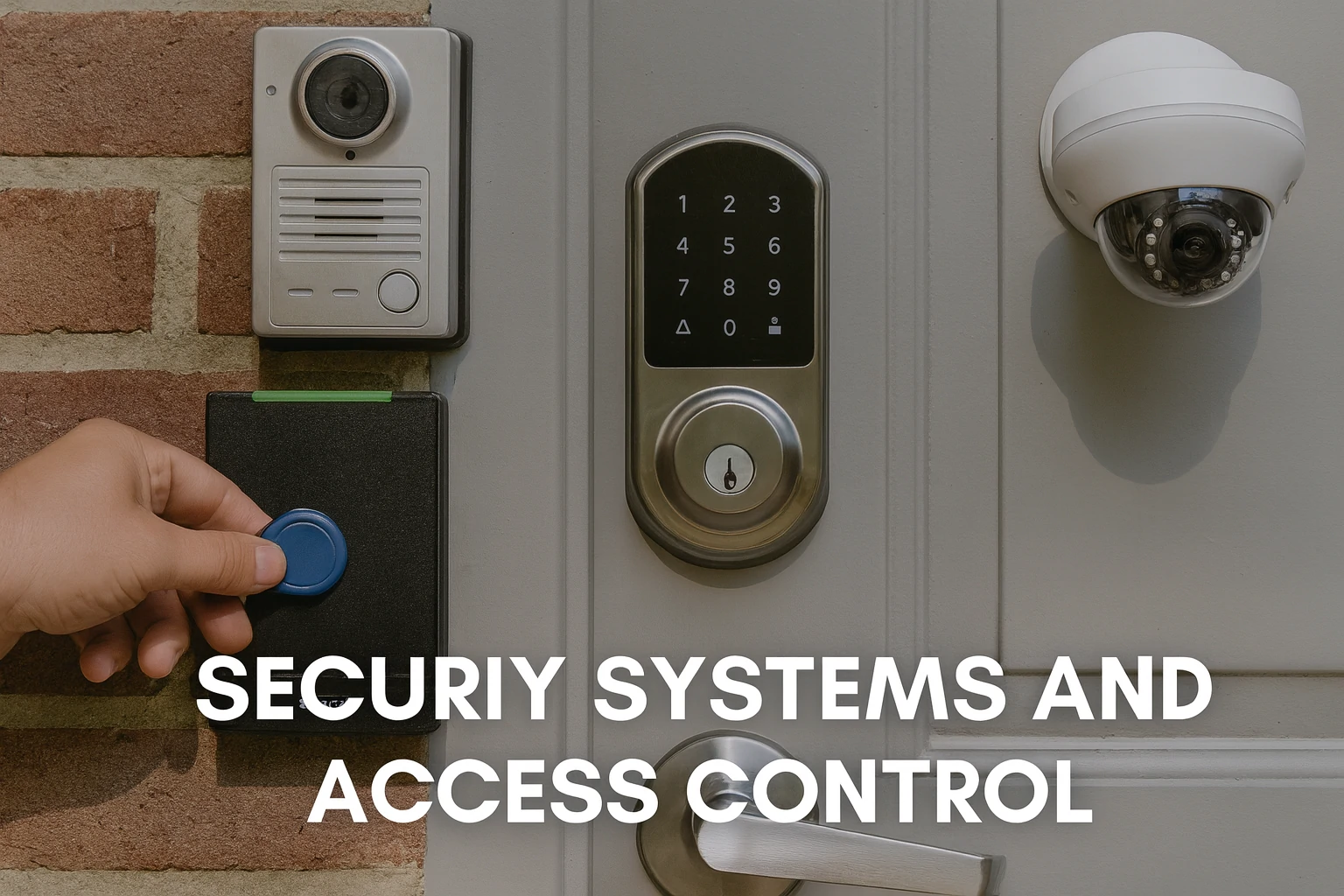
Many Alabama sorority houses use secure entry systems. Card readers, coded locks, or mobile key apps limit access to members. Cameras watch main doors and parking lots. Some houses use intercoms for visitor entry. A few also employ night security or campus police escorts.
The goal is simple -prevent strangers from entering. House directors or resident advisors monitor activity. Visitors must sign in during certain hours. Overnight guests often require approval. These small steps prevent incidents and create accountability.
Technology helps too. Security apps connect students with campus police in seconds. Some allow live tracking of a student’s route to and from the house. Parents often feel more comfortable when such systems exist.
Technology and Smart Surveillance
New technology adds extra safety layers to Alabama sorority homes. Many houses install smart locks, CCTV cameras, and digital keypads. Cameras cover entrances, parking lots, and main corridors. Data stays protected and accessible only to authorized staff.
Modern security platforms also alert police directly in emergencies. Parents appreciate these updates because they show real investment in student welfare.
Technology cannot replace human awareness, yet it supports every safety goal. A secure system paired with smart behavior forms the strongest shield.
Alcohol and Event Management
Greek events are part of college culture, but they must follow strict alcohol rules. Sororities in Alabama cannot host events with alcohol inside the house. Fraternities and off-campus venues may hold social events, yet even those must follow risk management policies.
Chapters that break alcohol rules face heavy penalties. Universities can suspend them or revoke housing rights. National organizations also enforce sanctions. This strict oversight prevents underage drinking and unsafe parties.
Safe event planning includes trained sober monitors, ID checks, and transport options. Sorority members often use designated driver programs or campus ride services after events. These habits protect everyone from harm and legal trouble.
Like the detailed design of Jerry Jones’ Texas mansion, some sorority houses focus on privacy, comfort, and advanced security to create a premium living experience near campus.
Health and Wellness Support
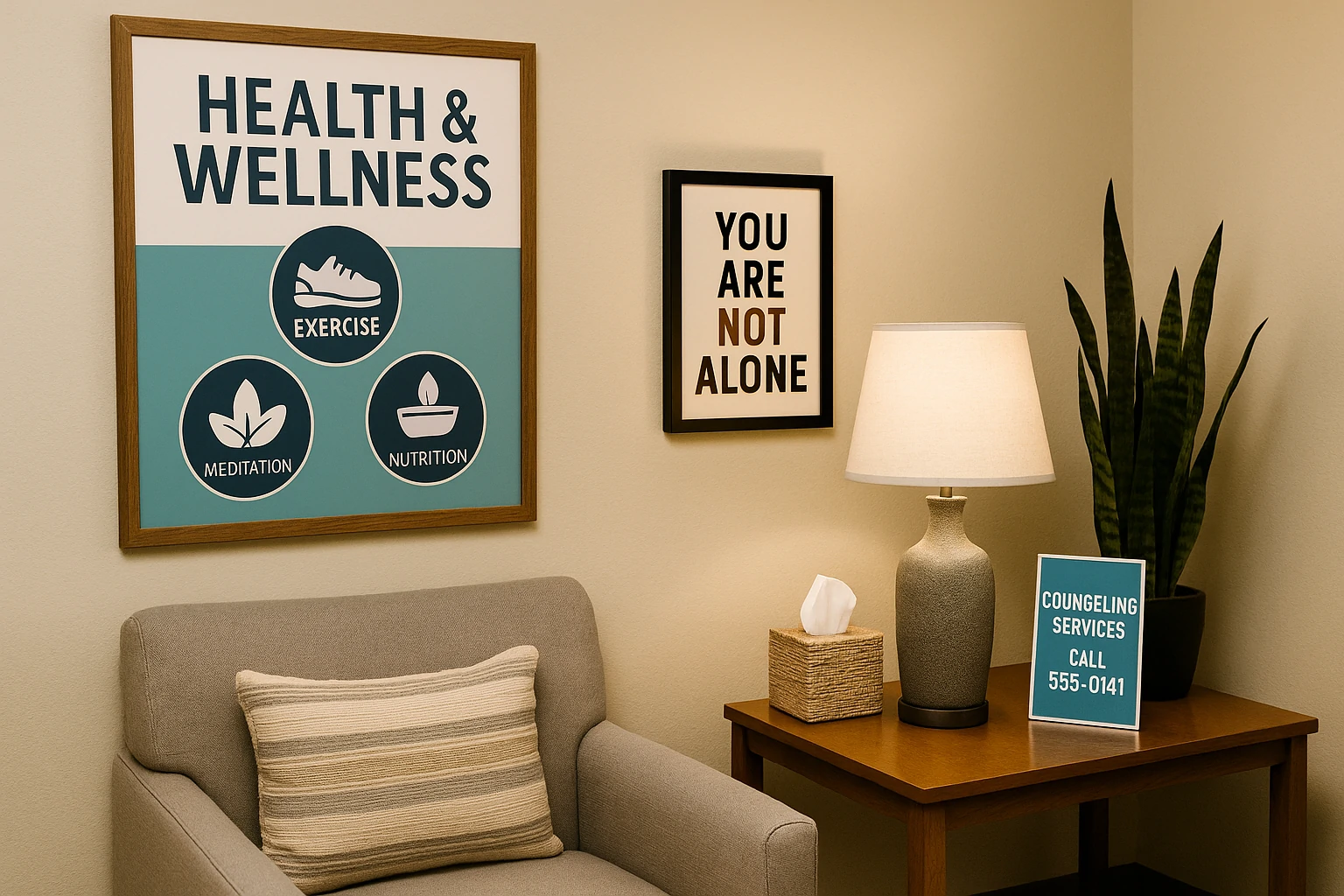
Safety is not just physical. Mental and emotional well-being matter too. Alabama universities provide health centers, counseling, and support hotlines. Sorority members often receive peer wellness training. They learn how to spot distress signs and help one another.
Many sororities have house directors who act as mentors. They live on-site and offer daily guidance. Members can go to them with personal or academic issues. This helps prevent problems from growing unnoticed.
Some universities also run workshops on stress, sleep, and nutrition. They teach students to balance social life and school work. Healthy habits strengthen safety. A student who feels supported makes wiser decisions.
Sexual Assault Awareness and Prevention
Universities and Greek organizations in Alabama take sexual assault prevention seriously. Each chapter receives education through mandatory workshops. These sessions teach consent, reporting steps, and intervention.
Campus police departments and Title IX offices work together. They provide confidential support and investigation if a report arises. Sorority leaders often train in peer response, helping victims get help fast.
Night escorts, campus patrols, and safety apps offer real-time protection. Students can also request police escorts when walking alone. Parents can ask if their child’s university participates in programs like “Safe Walk” or “UA Safety App.”
No environment is entirely risk-free. Still, awareness and response programs lower danger and create a culture of respect.
Reporting and Response System
A strong reporting system builds confidence. Students who face threats or harassment must know where to turn. Each Alabama university offers anonymous reporting tools online.
Once a report arrives, staff members act fast. Title IX offices review evidence, contact law enforcement if needed, and protect privacy. Sorority leaders guide affected members to medical or emotional help.
A clear process reduces fear. It also shows that safety rules are more than words they are active promises.
Mental Health and Emotional Safety
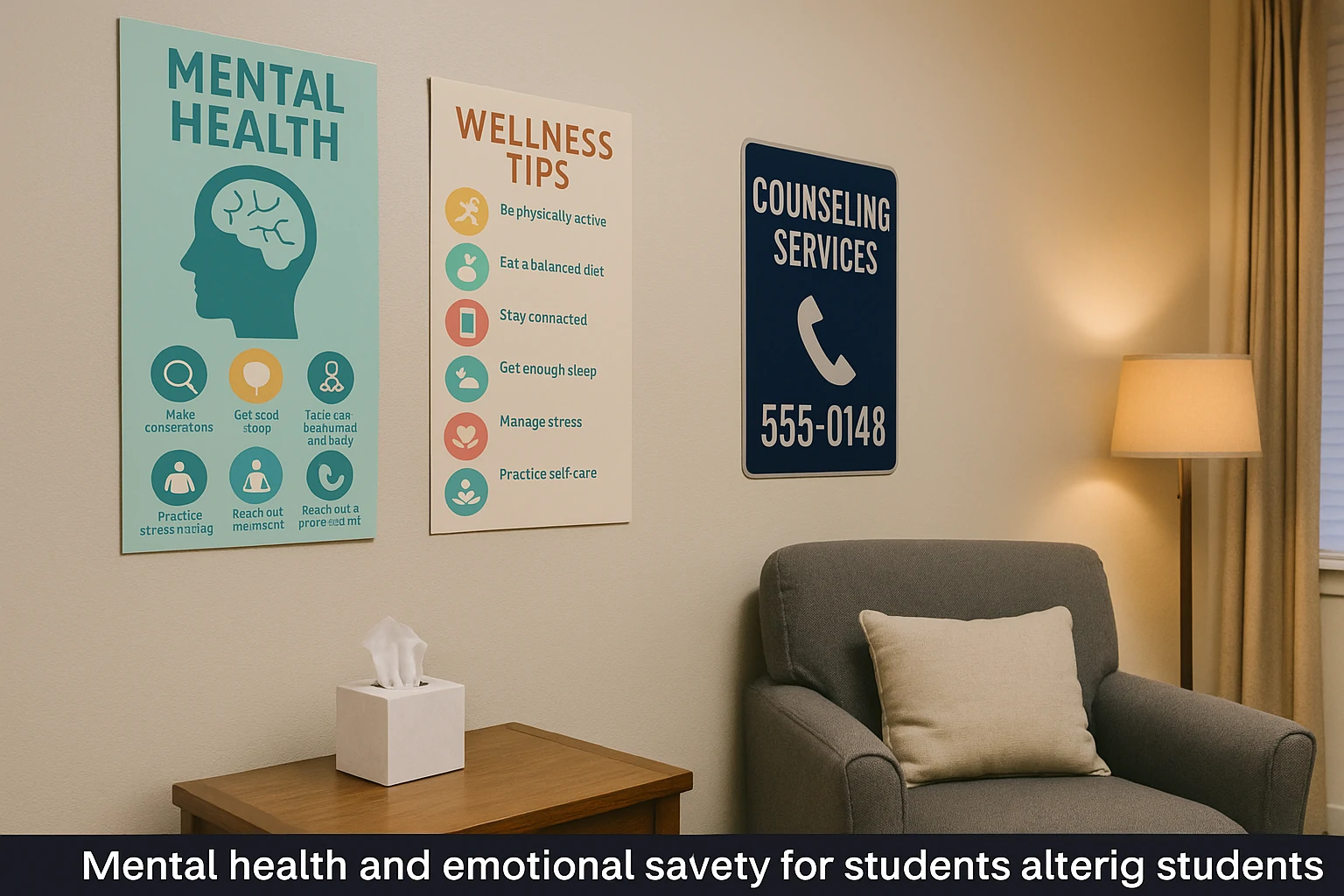
College stress can grow fast. Pressure from classes, events, and social life affects students deeply. Sorority houses that support emotional wellness reduce serious risks.
Chapters that promote open talk about anxiety and burnout build healthier communities. Many Alabama sororities now include wellness chairs who plan rest days, meditation sessions, or quiet study times.
Campus counseling centers also train students to identify warning signs in friends. Emotional care keeps the environment balanced. A calm mind supports physical safety too.
Tornado and Severe Weather Safety
Alabama faces tornadoes and harsh storms each year. Sorority houses must follow strict weather readiness plans. Every member should know where to shelter during alerts.
Most houses include reinforced safe rooms or basement areas. Universities connect directly with the National Weather Service. Alerts go to all registered phones through text or app notifications.
Students learn how to react without delay. Storm drills teach them to move quickly to safety zones. Preparedness turns fear into action.
Emergency Preparedness
Every sorority house must have an emergency plan. It includes fire evacuation, severe weather steps, and medical response. Alabama’s weather can be harsh. Tornadoes and storms often strike without warning. Houses keep emergency kits, flashlights, and storm radios ready.
Members practice what to do in drills. They know where to go if alarms sound. Universities send alerts through text and email during emergencies. Families should ensure their daughters sign up for these systems.
Some houses even have backup generators and emergency lighting. Preparation reduces panic. When students know what to do, they stay calmer and safer.
Role of House Directors and Advisors
A house director is often the heart of a sorority home. She ensures safety, order, and comfort. Most are older women with experience in education or student life. They supervise maintenance, handle emergencies, and guide members.
Advisors from alumni networks also visit often. They review house conditions and check on student welfare. Many are former members who care deeply about safety and tradition.
Together, directors and advisors link the students, university, and national chapter. This teamwork keeps standards high. Families should ask about the house director’s background and hours. A strong presence ensures quick help when needed.
Community and Neighborhood Safety
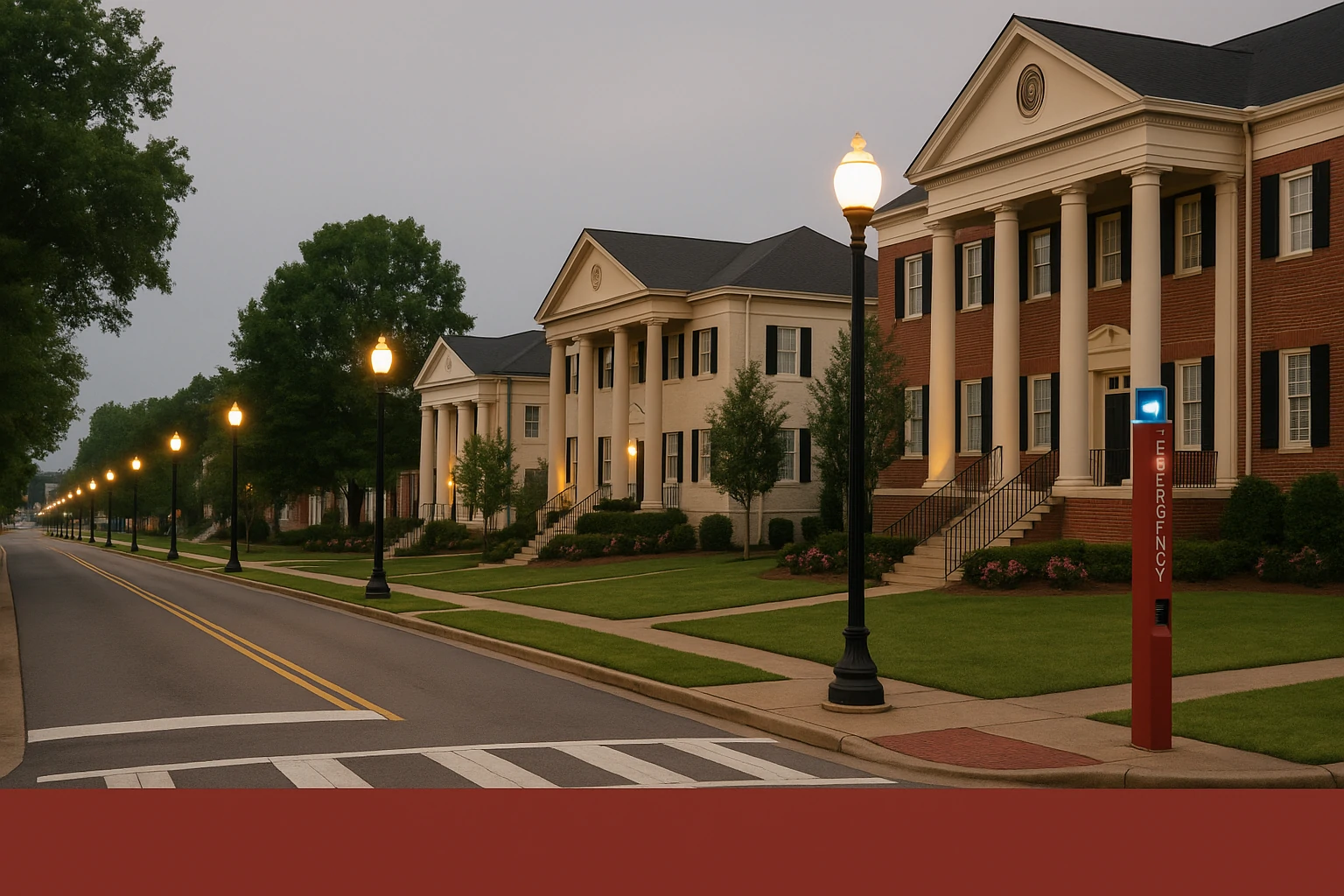
Many sorority houses sit in neighborhoods near campus. The University of Alabama’s Sorority Row, for example, lies close to downtown Tuscaloosa. These areas mix students, locals, and visitors. Campus and city police share patrol duties there.
Streetlights, sidewalks, and emergency phones add protection. Students are encouraged to travel in groups, especially at night. Most houses set curfew or check-in times for events. Ride-sharing apps, campus buses, and walk-safe programs are popular options.
Families visiting the area can look at crime maps. Local police websites show updated data. This gives a clear view of safety trends near each campus.
Legal Responsibilities and Rights
Students living in sorority houses have legal protections. Alabama law covers housing rights, safety codes, and reporting duties. If a house fails to meet state standards, it can face penalties. Universities can also act if conditions risk student welfare.
Members have rights to safe housing, privacy, and fair treatment. If harassment or neglect occurs, students can report it without fear of punishment. Each university provides anonymous reporting tools.
Parents can review a school’s annual Clery Report. This document lists campus crime data, safety efforts, and response plans. Federal law requires every university to share it. This transparency builds trust.
Insurance and Liability Protection
Each national sorority carries liability insurance. This policy protects the organization and its members. It covers injuries, property damage, or event risks. Students and parents rarely think about this part, but it matters. Insurance helps with medical bills or repair costs in case of accidents.
House corporations manage these policies. They ensure buildings meet requirements. Some also add renter’s coverage for students’ personal items. Parents should ask about coverage levels before move-in day.
Good insurance planning reflects a responsible organization. It shows the chapter values its members’ safety beyond social life.
Parent Involvement and Communication
Parents often feel left out once college starts. Still, communication can stay strong. Many sororities in Alabama hold parent weekends or newsletters. They share updates on safety, events, and house projects.
Families should ask for emergency contacts, maintenance schedules, and campus alerts. Knowing who to call in a crisis brings comfort. Parents can also encourage open talk about safety habits.
Students should never feel embarrassed to report issues. A simple call to the house director or campus security can prevent harm. Parents can remind their children to trust instincts and speak up when something feels off.
Student Responsibility and Smart Habits
Safety begins with awareness. Sorority members should lock doors, avoid risky areas, and use travel buddies at night. Keeping valuables hidden and using campus escorts also helps. Most problems occur when small precautions are ignored.
Peer accountability works best. Sisters look out for one another. If someone drinks too much or feels unsafe, others step in. This culture of care defines strong chapters.
Universities often host self-defense classes and safety fairs. Students can attend these events to build confidence. Learning basic steps makes a big difference during emergencies.
Handling Hazing and Peer Pressure
Hazing remains a concern in Greek life, even with strict bans. Alabama law prohibits it completely. Universities have clear rules, and violations lead to suspension or expulsion. National sororities also act fast when reports surface.
Hazing can include sleep loss, emotional harm, or physical tasks. It may hide behind “tradition,” but no student should accept it. Sorority leaders train members to spot and report it.
If someone faces hazing, they can contact the university’s anonymous hotline. Campus staff handle reports with care. Education and awareness reduce this risk across Alabama’s Greek system.
Diversity, Inclusion, and Respect
A safe home also means a welcoming one. Alabama’s sororities now focus more on inclusion. They open doors to students of different races, faiths, and backgrounds. Respectful culture supports safety. Members who feel accepted are less likely to face bullying or isolation.
Universities promote diversity training and dialogue. These programs build understanding. Sorority chapters that embrace such values create healthier homes. Families can ask about each chapter’s inclusion policy before joining.
Kindness, fairness, and empathy make a house safer than any lock or alarm.
Travel and Night Safety Tips
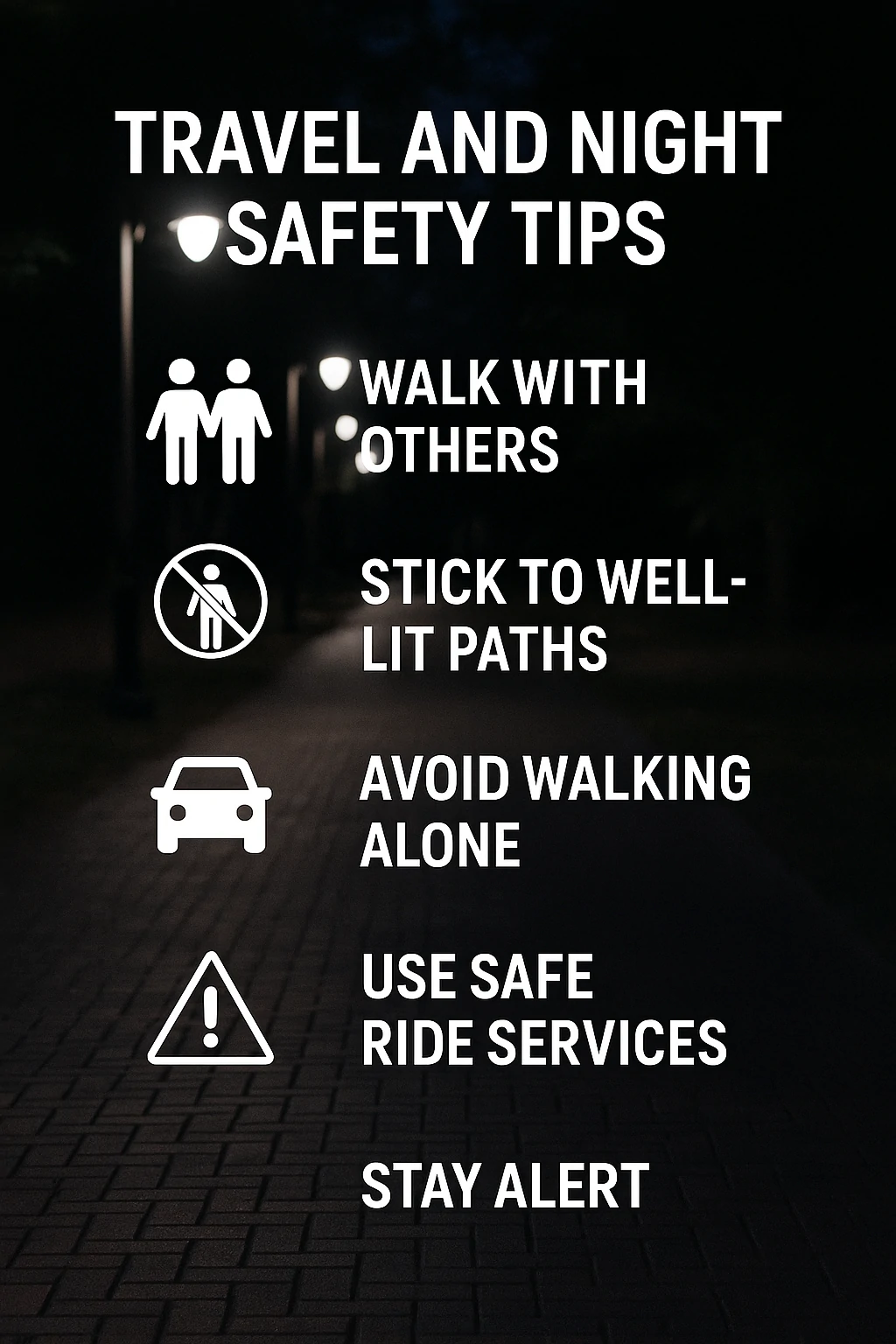
Moving around campus after dark can feel risky. Alabama sorority members use smart tools to stay safe. Campus escort services, ride apps, and safety groups help reduce exposure to danger.
Students walk in pairs or groups when possible. They choose well-lit paths and avoid shortcuts. Most universities also offer “Safe Walk” programs that let students share routes with trusted contacts.
Simple steps make big differences. Awareness, not fear, keeps students secure in every part of campus life.
University and Local Resources
Each major Alabama university offers safety tools. Students can use emergency numbers, campus police lines, and health services. Many schools also post safety apps online.
Key examples:
- University of Alabama: UA Safety App, 24/7 campus police line, and Title IX office.
- Auburn University: Safe Harbor program and emergency text alerts.
- University of South Alabama: Counseling Center, escort service, and emergency notifications.
These programs are free and open to all students. Families should explore them during orientation. Knowledge builds confidence and control.
Real Stories from Alabama Campuses
Many students share positive experiences about sorority housing. Members describe sisterhood and support that go beyond expectations. In Tuscaloosa, several houses upgraded to advanced fire systems after 2017. These changes saved lives during later storms.
Auburn University chapters launched a “Safe Return” program in 2020. It encourages members to text when they reach home after events. This small idea spread across other universities.
Such examples prove safety grows from action and care. Change happens when communities work together.
What Families Should Ask Before Move-In
Before a daughter moves into a sorority house, parents can prepare a checklist. Ask the following:
- Does the house pass fire inspection this year?
- What type of entry system controls access?
- Who handles maintenance and emergencies?
- Are campus police close to the area?
- Does insurance cover personal items?
- Are there health and counseling services nearby?
These questions show attention and care. They also encourage chapters to stay accountable. Students feel more protected when families stay involved.
Technology and Modern Safety Tools
Technology now plays a key role in student safety. Alabama sorority houses use apps, cameras, and alerts. Some allow instant police contact. Others share GPS routes with friends.
Smart locks and video doorbells reduce risk. Lighting systems trigger at night for better visibility. Students also wear smart devices that send distress alerts.
Technology cannot replace awareness, but it supports it. Combined with good habits, it makes sorority housing much safer than before.
When Problems Occur
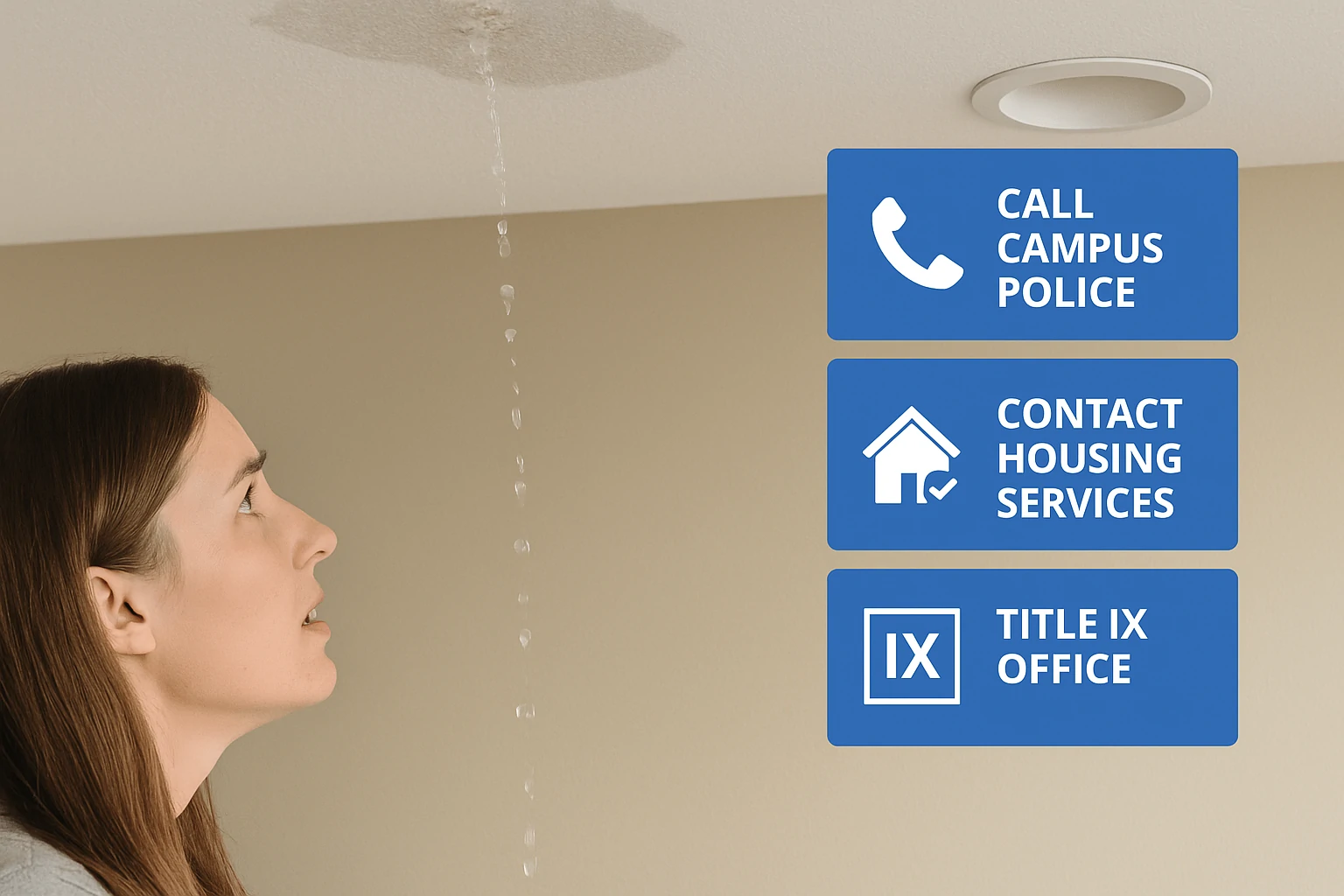
Even with all rules and systems, issues can appear. Plumbing failures, thefts, or personal conflicts may arise. Sororities handle minor issues internally, but serious problems need outside help.
If danger exists, contact campus police or housing services. Universities must act fast to protect students. Title IX offices handle reports of harassment or assault confidentially.
Parents should never hesitate to reach out. Quick communication solves problems early. Documentation and clear facts help resolve conflicts fairly.
How Universities Evaluate Safety
Each Alabama university reviews Greek housing yearly. They check structural safety, fire plans, and student conduct. Reports go to both the university and national sorority offices.
Chapters that fail may face restrictions or closure. Most, however, improve after inspection. Universities also use student feedback. Surveys on comfort, security, and fairness shape future policies.
These reviews show commitment. Alabama’s higher education system values student welfare as much as academic success.
The Role of National Sorority Headquarters
National organizations provide oversight beyond state lines. They set rules for housing, finances, and member conduct. Each Alabama chapter reports to its national board.
Headquarters send safety auditors, manage insurance, and run leadership conferences. They also track incidents and share solutions. This network spreads best practices across all states.
Parents and students can contact the national office anytime. Questions about policies or concerns often get fast replies. This structure keeps standards consistent and transparent.
Community Partnerships
Safety does not stop at campus borders. Alabama universities work with city agencies, landlords, and local groups. Together they improve lighting, patrols, and emergency plans.
Neighborhood watch programs near Greek housing areas help too. Some sorority members join these groups. They learn civic awareness and gain respect in the community. Partnerships turn college towns into safer environments for everyone.
The Future of Sorority Safety in Alabama

Technology, awareness, and leadership keep improving safety. Many chapters now invest in renewable energy systems and stronger infrastructure. Universities use data to predict and prevent risks.
Younger members bring new ideas. They focus on mental health, consent, and equality. This progress reflects a modern vision of Greek life – safer, smarter, and more inclusive.
Future families can expect stricter standards and better support. Alabama’s universities are not perfect, but they move in the right direction.
Conclusion
Sorority houses in Alabama have come a long way. They once focused mainly on tradition and social life. Now they focus on safety, respect, and responsibility. Every student deserves to feel secure at home, study without fear, and enjoy friendships with trust.
Parents can take comfort knowing universities enforce rules and modern systems protect their children. Still, awareness remains key. Students must stay alert, speak up, and support one another.
True safety comes from unity – from sisters who care, staff who guide, and families who stay involved. Alabama’s sorority houses continue to grow stronger because of this shared effort. Each house that values life and respect sets the best example for future generations.
Small design choices, like soft lighting and cozy textures, can help build emotional balance in shared homes. Adding the right floor decor-like those featured in our list of the 25 best rugs that transform your living room style-can make common areas feel warm and peaceful

